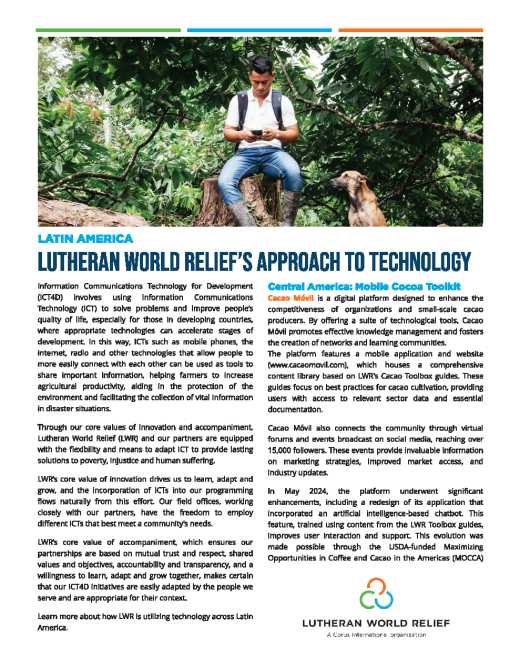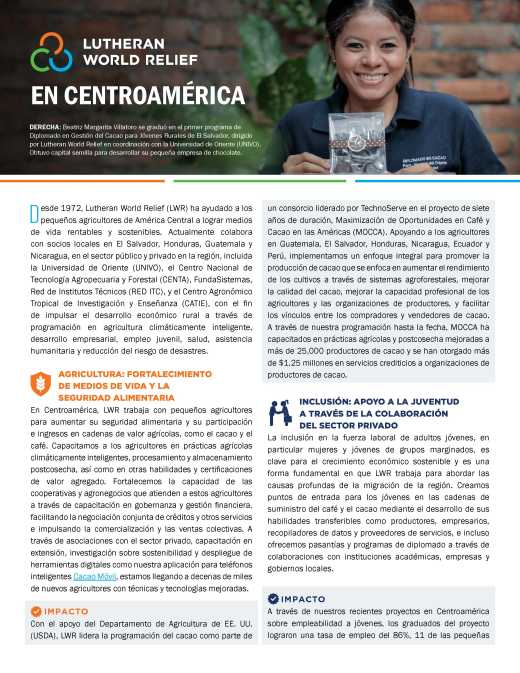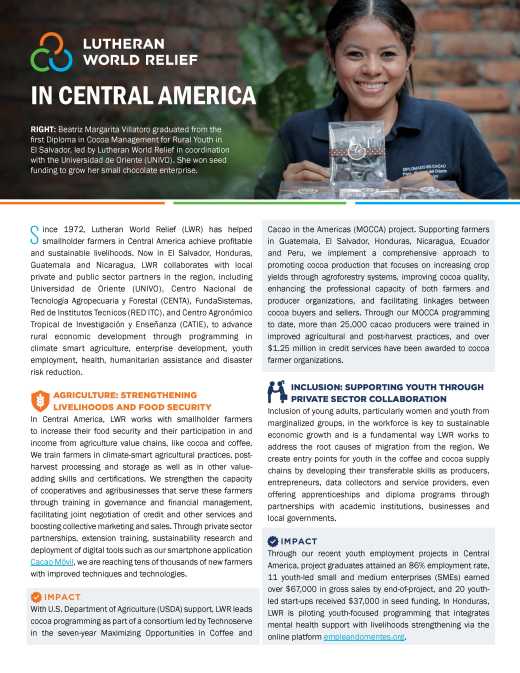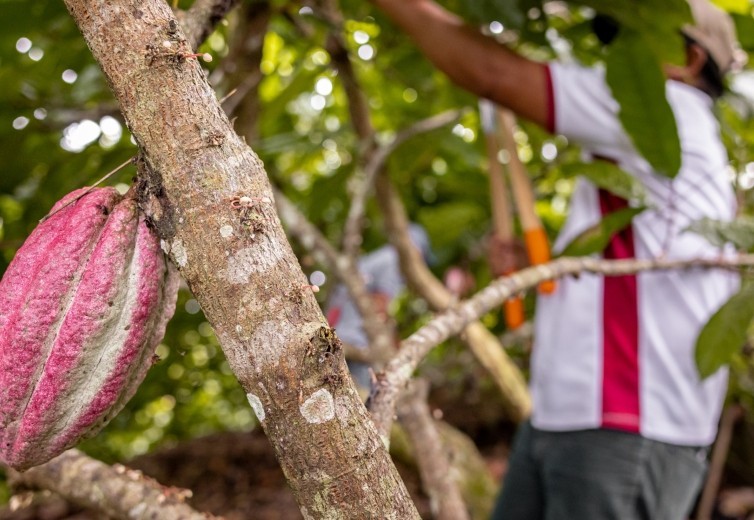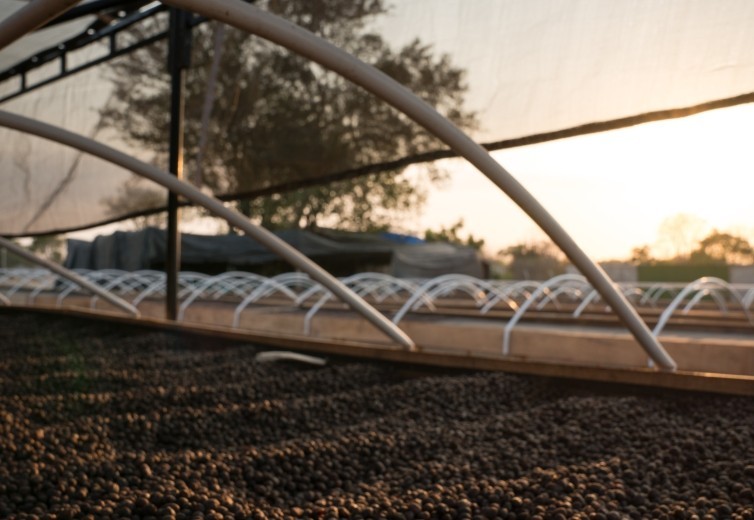Our Work in Nicaragua
Lutheran World Relief began working in Nicaragua in 1972 to promote sustainable livelihoods for rural farmers. As the program expanded to other countries Managua, Nicaragua became LWR’s Central America regional office and currently oversees projects in El Salvador, Honduras, Nicaragua, and Haiti.
Presently, over 75 percent of Nicaragua’s population lives on less than $2.00 per day, making it the second poorest country in the Western Hemisphere. Agriculture is very important to domestic economic activity in Nicaragua, generating 38 percent of rural employment and contributing 20 percent of the country’s gross domestic product (GDP).
To fulfill its long-term commitment to rural development in Nicaragua, LWR works in partnership with international non-governmental organizations (NGOs), local and national NGOs, producer organizations and private sector companies. In Nicaragua LWR addresses development challenges such as lack of smallholder credit access, equity in agriculture, transfer of technological innovations for the rural sector, sustainable clean production, and climate-resilient agriculture practices.
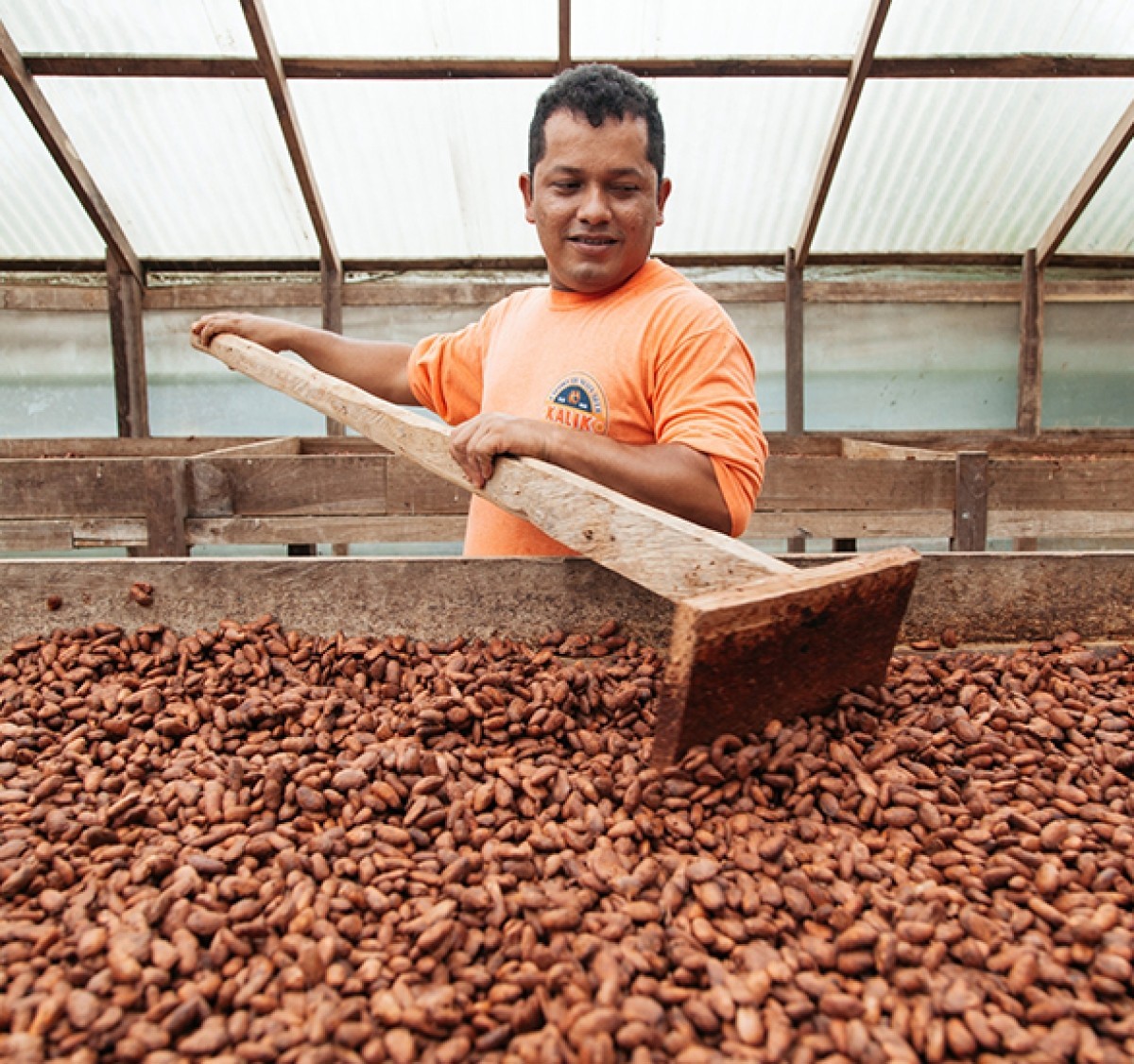
Agriculture value chains: cocoa and coffee
Throughout Nicaragua LWR is a well-known development partner helping rural smallholder farmers improve returns from cocoa and coffee crops. Producer associations and cooperatives are essential structures for helping smallholder farmers successfully participate in agriculture value chains. LWR builds the capacity of associations and cooperatives so they are able to help members improve yields, quality, post-harvest processing and storage of crops. Our efforts incorporate environmentally-sound agricultural practices, encouraging organic and Fair Trade certifications, which help producers achieve added value. LWR also helps producer associations and cooperatives engage with external stakeholders to increase their competitiveness in national and international markets.
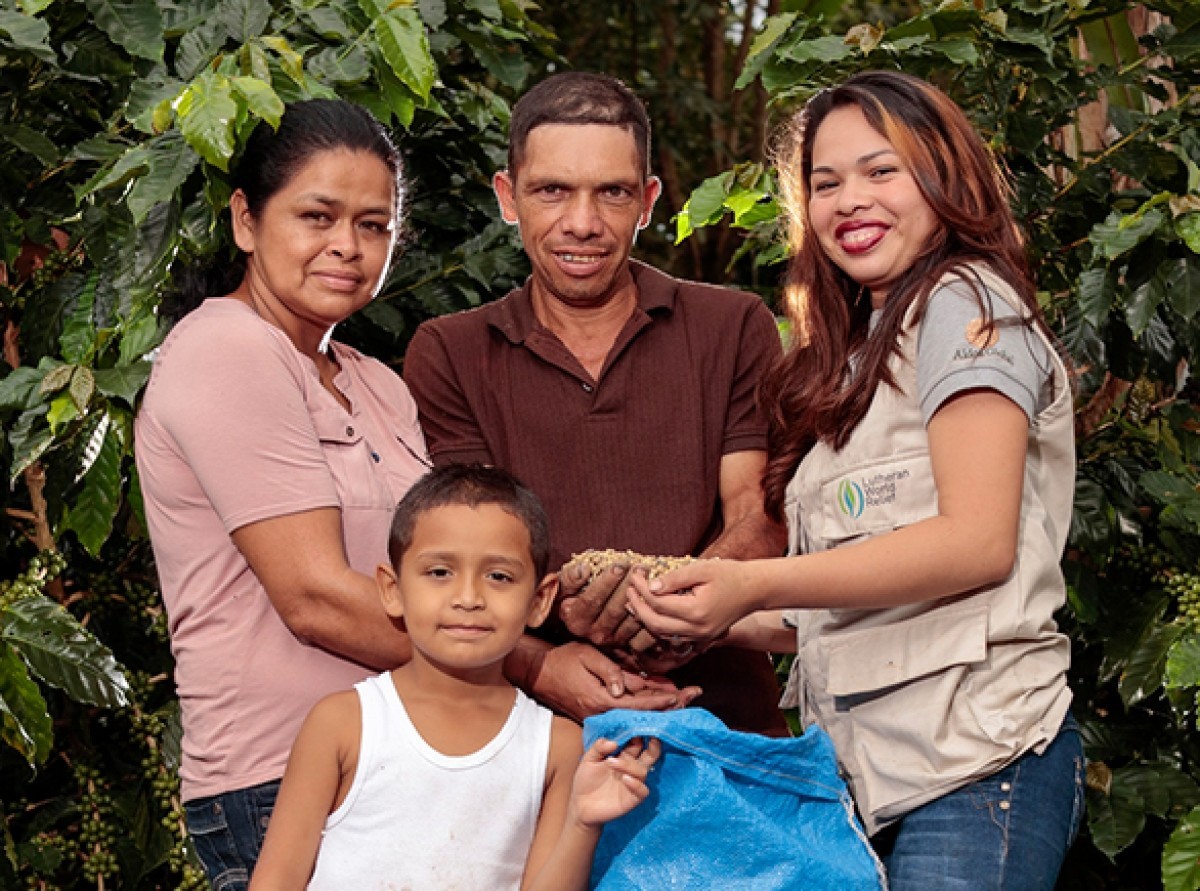
equity in agriculture
In 2013, LWR begin working with the Cooperative Flor de Pancasán to improve production of beans and corn. LWR and local partner Asociación para la Diversificación y el Desarrollo Agrícola Comunal (ADDAC) carried out a gender-sensitive needs assessment which identified clear differences in the benefits men and women cooperative members received in credit, training, marketing and technical assistance, as well as differences between women and men in their knowledge of agriculture and marketing opportunities.
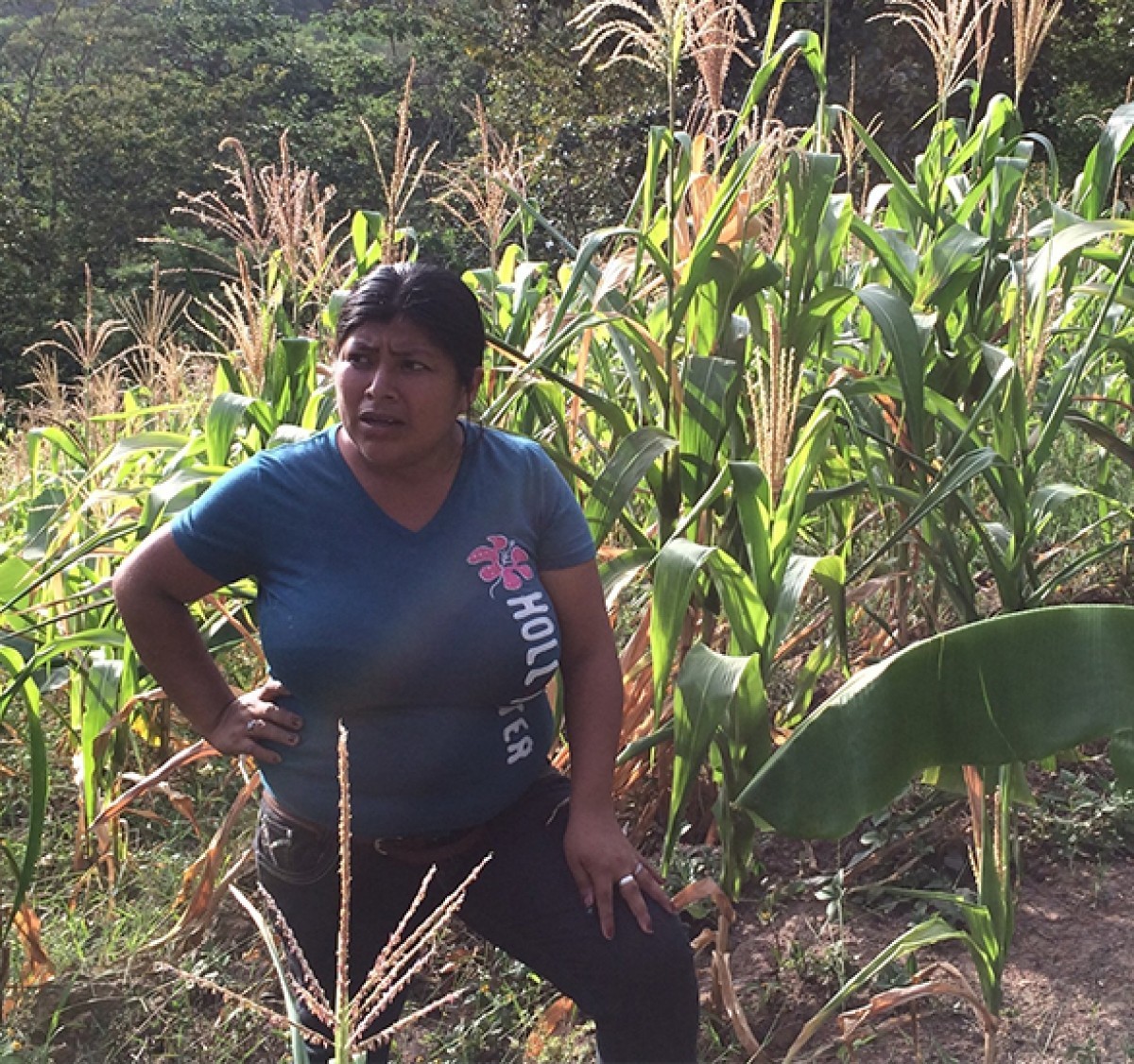
Climate change: adaptation and disaster response
LWR supports practices and technologies that allow rural communities to adapt to the effects of climate change and respond to climate-induced natural disasters. Working directly with smallholder producers, who are vulnerable to the effects of climate change, LWR promotes: water conservation; crop diversification; coffee and cocoa production under agroforestry systems; and other climate-smart agricultural practices. This focus has reduced vulnerability to losses caused by unpredictable weather and has increased protection of water sources critical to crop production.
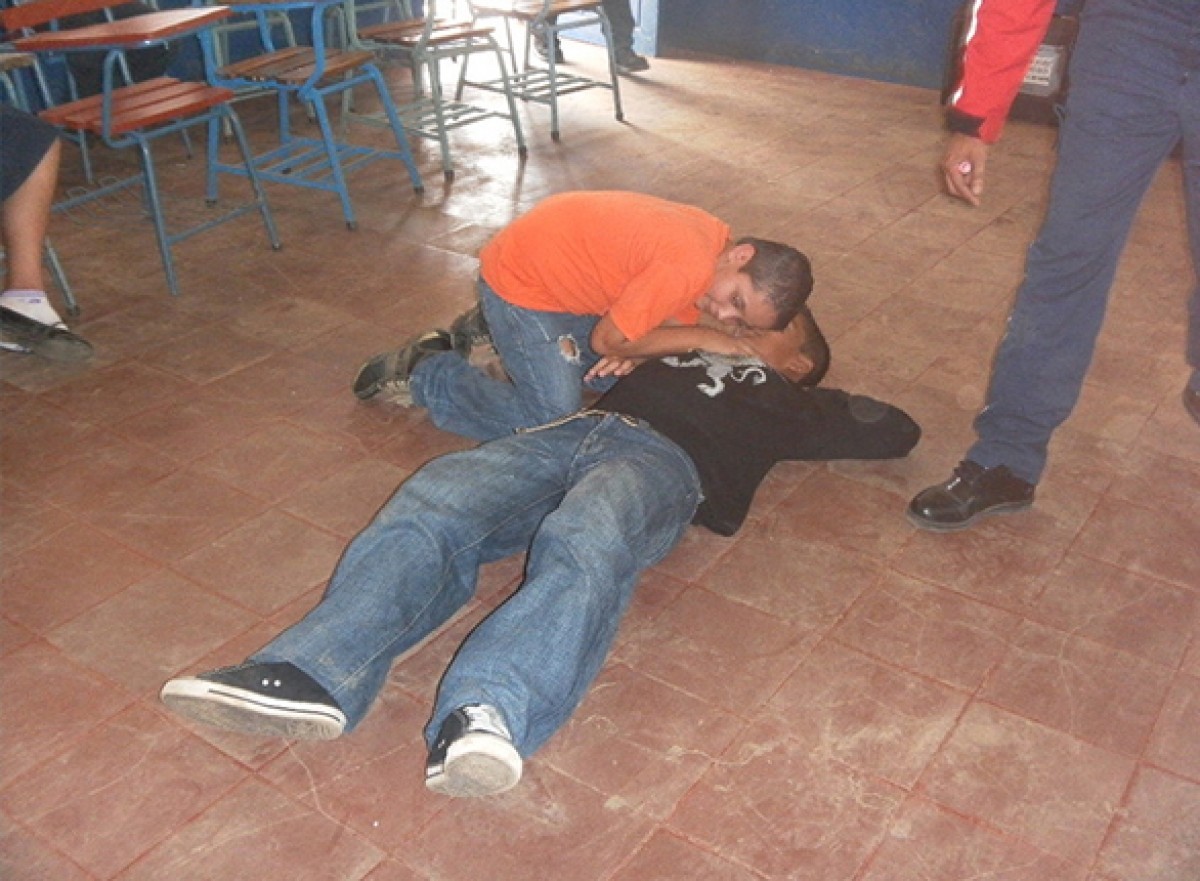
Emergency operations
Due to Nicaragua’s geographical position and characteristics many regions are affected by natural disasters like earthquakes, floods, hurricanes, droughts, volcanoes, and landslides. These hazards and the ongoing social and economic vulnerabilities caused by climate change make Nicaragua a hot bed for potential disasters.



